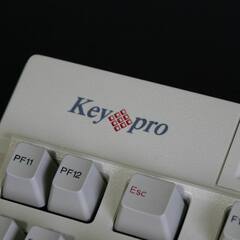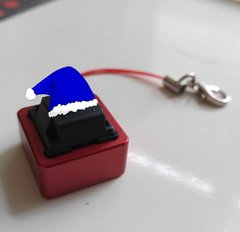-
Posts
303 -
Joined
-
Last visited
Reputation Activity
-
 Levis95l got a reaction from Tataffe in Vega's rumoured insane mining performance is false according to Io-tech
Levis95l got a reaction from Tataffe in Vega's rumoured insane mining performance is false according to Io-tech
A while a ago we heard rumours about insane crypto currency mining performance on Vega with upcoming drivers. According to them, RX Vega would achieve numbers around 60-70 MH/s, or even more. There's a topic about the matter here.
Today, alongside RX Vega unboxing, Finnish tech journalist Sampsa Kurri from Io-tech revealed that, at least according to his testing, the previous rumours are false. He started by telling the obvious, that we have to wait until Monday for benchmark numbers and other testing. But then he added: (this is my clumsy translation)
So at least with the driver that reviewers are using in their current testing, the mining performance shouln't be anything extraordinary. Of course it's always possible that there's an even newer driver on it's way that has improvements. But to me it seems unlikely right now.
Source (in Finnish): Io-tech's RX Vega unboxing at 10:32
-
 Levis95l reacted to Enderman in Custom AX860i fan mod!
Levis95l reacted to Enderman in Custom AX860i fan mod!
Welcome to my AX860i mod log!
Today we will be replacing the stock fan with a nice and quiet Noiseblocker eLoop.
NOTE-this is only for PSUs that have a 120 or 140mm fan, the AX1200i (and maybe 1500i?) uses a 135mm fan which cannot be replaced.
A known issue with the AXi power supplies from Corsair is that they make a clicking noise when the fan is off, and it sounds like a "leaky faucet" every 5-10 seconds.
This is because the Yate Loon fan in the PSU is still getting a really low PWM signal, but it is stalled and cannot turn.
A solution is to set the PSU fan to minimum speed (40%) but that is still very loud.
Here is how you can replace the 120mm fan in an AX760i or AX860i with a better PWM fan.
-
 Levis95l reacted to DocSwag in AMD Zen Architecture Deep Dive
Levis95l reacted to DocSwag in AMD Zen Architecture Deep Dive
It seems that quite a bit of info has come out about the zen architecture thanks to David Kanter, who was the same guy who figured out that nvidia's Maxwell and Pascal GPU architectures are utilizing tile based rasterization. You can check out his full deep dive here.
Now I won't pretend to even understand half of it, but some of those of you out there with EE, CE, CS, or any other major that required extensive knowledge about CPU architecture may find it quite interesting.
As well, if you're interested, David Kanter also did an interview with PCPer about the zen architecture which you can check out here:
I think that all this info arose from ISSCC. I've found it quite interesting even if I didn't understand all of it. It seems though that zen won't be very suitable for HPC; perhaps they did this to save die space in order to maximize profits of consumer and server CPUs. As well, it seems zen ipc would be between Ivy bridge and haswell. I'm honestly not surprised, there have only been a limited amount of official benchmarks from AMD and since they were the ones showing them off I wouldn't be surprised if they were cherry picked. However, even if it's only ivy bridge IPC, zen still could very well shake up the whole CPU market.
-
 Levis95l reacted to MageTank in g.skill Trident Z DDR4 Owners - can you remove the red trim?
Levis95l reacted to MageTank in g.skill Trident Z DDR4 Owners - can you remove the red trim?
https://www.techpowerup.com/reviews/GSkill/F4-3200C16D-16GTZ/4.html
http://aphnetworks.com/reviews/g-skill-trident-z-f4-3200c16d-16gtz-2x8gb/2
It looks to be removable without compromising the structural integrity of the memory. You might even be able to paint it once you remove it, and put it back in place if the color scheme is not something you desire. Hope this helped you out.
-
 Levis95l got a reaction from AustinJ in 6-core Ryzen processors technically possible
Levis95l got a reaction from AustinJ in 6-core Ryzen processors technically possible
According to the source not. It says that both CCX's would need to have same amount of cores and L3 cache. (So the other module having 4 cores and the other 3 would not work.)
-
 Levis95l reacted to RezChi in 6-core Ryzen processors technically possible
Levis95l reacted to RezChi in 6-core Ryzen processors technically possible
Canard PC also claims that there is a 6C/12T no 8C/8T
-
 Levis95l got a reaction from dalekphalm in 6-core Ryzen processors technically possible
Levis95l got a reaction from dalekphalm in 6-core Ryzen processors technically possible
A few days back we heard a rumour that there was not going to be a 6-core sku of Ryzen. There's a post about it here.
I among other people speculated that it would be due to Ryzen's 4-cores/module architecture.
A few hours ago a Finnish tech news site io-tech.fi published an article claiming that there is no technical limitation for 6-core Ryzen processors to exist.
Translated from Finnish (by me):
EDIT: "The rumour in question" being that the CXX (CPU complex) in Zen architecture would limit the possible core configurations to 4 and 8. I wan't to be clear on that they did not confirm 6-core sku's existance either.
From the English summary in the article:
So it seems pretty certain that at least technically there's no reason to make 6-core chips. (By disabling cores from defectice 8-core chips that is.)
I'm excited, since before it looked like there would be just a big gap between the price points of 4-cores and 8-cores.
Source: io-tech.fi
(The article is in Finnish but there's an English summary at the end.)
-
 Levis95l got a reaction from FirstArmada in Apperantly no 6core RyZen sku
Levis95l got a reaction from FirstArmada in Apperantly no 6core RyZen sku
Since Zen consists of 4-core modules, I always wondered what the 6-core rumours were about. Unless they'd disable two cores from the 8-core then.
-
.png) Levis95l reacted to Mr.Meerkat in Cryorig: Free AM4 upgrade kits
Levis95l reacted to Mr.Meerkat in Cryorig: Free AM4 upgrade kits
Yeah...totally...
On a side note, I think my posts have slowly gone back to poop-posting since I came back from climbing...ah ducks, @Energycore will not be happy as I'd said my posts will be 75 (%, useful)/25 (%, poop-posting) rather than 50/50...wait, why am I tagging him?
-
 Levis95l reacted to Techicolors in Cryorig: Free AM4 upgrade kits
Levis95l reacted to Techicolors in Cryorig: Free AM4 upgrade kits
I believe Cyrorig isn't the only one offering free AM4 upgrade kits...
http://www.pcgamer.com/phanteks-and-other-cooler-makers-offer-free-am4-upgrade-kits/
nice deal, tho. honestly would like to keep using my existing cooler if i move to AM4
-
 Levis95l got a reaction from dalekphalm in Turing Robotic Industries' property in Finland set on seizure
Levis95l got a reaction from dalekphalm in Turing Robotic Industries' property in Finland set on seizure
Yeah, it's my bad. Was struggling a bit with these "law terms" (not excactly everyday English).
But that is the exact way it was put in Finnish. So instead of the property being already seized, only an order for them to be seized has been given. At least I got the impression that nothing concrete had been done at the time writing.
-
 Levis95l reacted to Trixanity in Apperantly no 6core RyZen sku
Levis95l reacted to Trixanity in Apperantly no 6core RyZen sku
Indeed. I suspected 6 cores might not be available due to the architecture arrangement. Well, unless defective 8 core SKUs can be transformed into 6 core SKUs without a hitch. I mean it might cause trouble with other parts of the chip if two cores are disabled due to that peculiar arrangement.
-

-
 Levis95l got a reaction from DededeKirby in Intel processor architectures tested clock-to-clock in gaming - results all over the place
Levis95l got a reaction from DededeKirby in Intel processor architectures tested clock-to-clock in gaming - results all over the place
Finnish tech news site io-tech.fi has got some weird results testing the new Core i7-7700K against Intels previous processors. They tested Kaby Lake against Skylake clock-to-clock like many other news sites, but included also Sandybridge, Ivy Bridge and Haswell in the testing. All processors were run at 4.0 GHz and with 2400 MHz memory speed (except Sandybridge which only supports 2133 MHz).
In synthetic benchmarks and rendering the results were as expected: Kaby Lake and Skylake scored even but otherwise performance had improved slightly by every generation. Kaby Lake beat Sandybridge by around 25-30% depending on the test.
When tested in games with GTX 1080 at 1080p the results don't seem to make any sense however. The frame rates were measured with OCAT. In Battlefield 1 (DX12) Ivy Bridge beat all the others by 12 fps despite several re-runs. With Kaby Lake and Skylake the test hitched in couple of places resulting in noticeable drop in fps. Ivy Bridge suffered from the same behavior, but not in the same level.
In Gears of war: Warhammer (DX12) and Civilization VI AI Benchmark (DX12) Kaby Lake and Skylake beat Ivy Bridge but Haswell rose to the top.
In GTA V (DX11) Haswell and Ivy Bridge were on top of Kaby Lake and Skylake.
Take this how you will. At least it seems that the IPC improvements don't really transfer to games. A small increase in clock speed would lift any one of the processors to the top.
Tell me if you liked me to translate more of the article to English. The testing methology in more detail for example.
Source and all the benchmarks for you to see: https://www.io-tech.fi/artikkelit/intel-core-i7-7700k-core-i5-7600k-kaby-lake/
-
.png) Levis95l got a reaction from Hayabusa1989 in Intel processor architectures tested clock-to-clock in gaming - results all over the place
Levis95l got a reaction from Hayabusa1989 in Intel processor architectures tested clock-to-clock in gaming - results all over the place
Finnish tech news site io-tech.fi has got some weird results testing the new Core i7-7700K against Intels previous processors. They tested Kaby Lake against Skylake clock-to-clock like many other news sites, but included also Sandybridge, Ivy Bridge and Haswell in the testing. All processors were run at 4.0 GHz and with 2400 MHz memory speed (except Sandybridge which only supports 2133 MHz).
In synthetic benchmarks and rendering the results were as expected: Kaby Lake and Skylake scored even but otherwise performance had improved slightly by every generation. Kaby Lake beat Sandybridge by around 25-30% depending on the test.
When tested in games with GTX 1080 at 1080p the results don't seem to make any sense however. The frame rates were measured with OCAT. In Battlefield 1 (DX12) Ivy Bridge beat all the others by 12 fps despite several re-runs. With Kaby Lake and Skylake the test hitched in couple of places resulting in noticeable drop in fps. Ivy Bridge suffered from the same behavior, but not in the same level.
In Gears of war: Warhammer (DX12) and Civilization VI AI Benchmark (DX12) Kaby Lake and Skylake beat Ivy Bridge but Haswell rose to the top.
In GTA V (DX11) Haswell and Ivy Bridge were on top of Kaby Lake and Skylake.
Take this how you will. At least it seems that the IPC improvements don't really transfer to games. A small increase in clock speed would lift any one of the processors to the top.
Tell me if you liked me to translate more of the article to English. The testing methology in more detail for example.
Source and all the benchmarks for you to see: https://www.io-tech.fi/artikkelit/intel-core-i7-7700k-core-i5-7600k-kaby-lake/
-
 Levis95l reacted to Fetzie in Intel processor architectures tested clock-to-clock in gaming - results all over the place
Levis95l reacted to Fetzie in Intel processor architectures tested clock-to-clock in gaming - results all over the place
Wait for Ryzen, and either 5820k or 6800k if Ryzen falls on it's face.
-
.png) Levis95l got a reaction from wrath in Intel processor architectures tested clock-to-clock in gaming - results all over the place
Levis95l got a reaction from wrath in Intel processor architectures tested clock-to-clock in gaming - results all over the place
Finnish tech news site io-tech.fi has got some weird results testing the new Core i7-7700K against Intels previous processors. They tested Kaby Lake against Skylake clock-to-clock like many other news sites, but included also Sandybridge, Ivy Bridge and Haswell in the testing. All processors were run at 4.0 GHz and with 2400 MHz memory speed (except Sandybridge which only supports 2133 MHz).
In synthetic benchmarks and rendering the results were as expected: Kaby Lake and Skylake scored even but otherwise performance had improved slightly by every generation. Kaby Lake beat Sandybridge by around 25-30% depending on the test.
When tested in games with GTX 1080 at 1080p the results don't seem to make any sense however. The frame rates were measured with OCAT. In Battlefield 1 (DX12) Ivy Bridge beat all the others by 12 fps despite several re-runs. With Kaby Lake and Skylake the test hitched in couple of places resulting in noticeable drop in fps. Ivy Bridge suffered from the same behavior, but not in the same level.
In Gears of war: Warhammer (DX12) and Civilization VI AI Benchmark (DX12) Kaby Lake and Skylake beat Ivy Bridge but Haswell rose to the top.
In GTA V (DX11) Haswell and Ivy Bridge were on top of Kaby Lake and Skylake.
Take this how you will. At least it seems that the IPC improvements don't really transfer to games. A small increase in clock speed would lift any one of the processors to the top.
Tell me if you liked me to translate more of the article to English. The testing methology in more detail for example.
Source and all the benchmarks for you to see: https://www.io-tech.fi/artikkelit/intel-core-i7-7700k-core-i5-7600k-kaby-lake/
-
 Levis95l got a reaction from YoloSwag in Intel processor architectures tested clock-to-clock in gaming - results all over the place
Levis95l got a reaction from YoloSwag in Intel processor architectures tested clock-to-clock in gaming - results all over the place
Finnish tech news site io-tech.fi has got some weird results testing the new Core i7-7700K against Intels previous processors. They tested Kaby Lake against Skylake clock-to-clock like many other news sites, but included also Sandybridge, Ivy Bridge and Haswell in the testing. All processors were run at 4.0 GHz and with 2400 MHz memory speed (except Sandybridge which only supports 2133 MHz).
In synthetic benchmarks and rendering the results were as expected: Kaby Lake and Skylake scored even but otherwise performance had improved slightly by every generation. Kaby Lake beat Sandybridge by around 25-30% depending on the test.
When tested in games with GTX 1080 at 1080p the results don't seem to make any sense however. The frame rates were measured with OCAT. In Battlefield 1 (DX12) Ivy Bridge beat all the others by 12 fps despite several re-runs. With Kaby Lake and Skylake the test hitched in couple of places resulting in noticeable drop in fps. Ivy Bridge suffered from the same behavior, but not in the same level.
In Gears of war: Warhammer (DX12) and Civilization VI AI Benchmark (DX12) Kaby Lake and Skylake beat Ivy Bridge but Haswell rose to the top.
In GTA V (DX11) Haswell and Ivy Bridge were on top of Kaby Lake and Skylake.
Take this how you will. At least it seems that the IPC improvements don't really transfer to games. A small increase in clock speed would lift any one of the processors to the top.
Tell me if you liked me to translate more of the article to English. The testing methology in more detail for example.
Source and all the benchmarks for you to see: https://www.io-tech.fi/artikkelit/intel-core-i7-7700k-core-i5-7600k-kaby-lake/
-
.png) Levis95l got a reaction from kelvinhall05 in Intel processor architectures tested clock-to-clock in gaming - results all over the place
Levis95l got a reaction from kelvinhall05 in Intel processor architectures tested clock-to-clock in gaming - results all over the place
Finnish tech news site io-tech.fi has got some weird results testing the new Core i7-7700K against Intels previous processors. They tested Kaby Lake against Skylake clock-to-clock like many other news sites, but included also Sandybridge, Ivy Bridge and Haswell in the testing. All processors were run at 4.0 GHz and with 2400 MHz memory speed (except Sandybridge which only supports 2133 MHz).
In synthetic benchmarks and rendering the results were as expected: Kaby Lake and Skylake scored even but otherwise performance had improved slightly by every generation. Kaby Lake beat Sandybridge by around 25-30% depending on the test.
When tested in games with GTX 1080 at 1080p the results don't seem to make any sense however. The frame rates were measured with OCAT. In Battlefield 1 (DX12) Ivy Bridge beat all the others by 12 fps despite several re-runs. With Kaby Lake and Skylake the test hitched in couple of places resulting in noticeable drop in fps. Ivy Bridge suffered from the same behavior, but not in the same level.
In Gears of war: Warhammer (DX12) and Civilization VI AI Benchmark (DX12) Kaby Lake and Skylake beat Ivy Bridge but Haswell rose to the top.
In GTA V (DX11) Haswell and Ivy Bridge were on top of Kaby Lake and Skylake.
Take this how you will. At least it seems that the IPC improvements don't really transfer to games. A small increase in clock speed would lift any one of the processors to the top.
Tell me if you liked me to translate more of the article to English. The testing methology in more detail for example.
Source and all the benchmarks for you to see: https://www.io-tech.fi/artikkelit/intel-core-i7-7700k-core-i5-7600k-kaby-lake/
-
 Levis95l got a reaction from Kunter in Intel processor architectures tested clock-to-clock in gaming - results all over the place
Levis95l got a reaction from Kunter in Intel processor architectures tested clock-to-clock in gaming - results all over the place
Finnish tech news site io-tech.fi has got some weird results testing the new Core i7-7700K against Intels previous processors. They tested Kaby Lake against Skylake clock-to-clock like many other news sites, but included also Sandybridge, Ivy Bridge and Haswell in the testing. All processors were run at 4.0 GHz and with 2400 MHz memory speed (except Sandybridge which only supports 2133 MHz).
In synthetic benchmarks and rendering the results were as expected: Kaby Lake and Skylake scored even but otherwise performance had improved slightly by every generation. Kaby Lake beat Sandybridge by around 25-30% depending on the test.
When tested in games with GTX 1080 at 1080p the results don't seem to make any sense however. The frame rates were measured with OCAT. In Battlefield 1 (DX12) Ivy Bridge beat all the others by 12 fps despite several re-runs. With Kaby Lake and Skylake the test hitched in couple of places resulting in noticeable drop in fps. Ivy Bridge suffered from the same behavior, but not in the same level.
In Gears of war: Warhammer (DX12) and Civilization VI AI Benchmark (DX12) Kaby Lake and Skylake beat Ivy Bridge but Haswell rose to the top.
In GTA V (DX11) Haswell and Ivy Bridge were on top of Kaby Lake and Skylake.
Take this how you will. At least it seems that the IPC improvements don't really transfer to games. A small increase in clock speed would lift any one of the processors to the top.
Tell me if you liked me to translate more of the article to English. The testing methology in more detail for example.
Source and all the benchmarks for you to see: https://www.io-tech.fi/artikkelit/intel-core-i7-7700k-core-i5-7600k-kaby-lake/
-
 Levis95l got a reaction from Orangeator in Intel processor architectures tested clock-to-clock in gaming - results all over the place
Levis95l got a reaction from Orangeator in Intel processor architectures tested clock-to-clock in gaming - results all over the place
Finnish tech news site io-tech.fi has got some weird results testing the new Core i7-7700K against Intels previous processors. They tested Kaby Lake against Skylake clock-to-clock like many other news sites, but included also Sandybridge, Ivy Bridge and Haswell in the testing. All processors were run at 4.0 GHz and with 2400 MHz memory speed (except Sandybridge which only supports 2133 MHz).
In synthetic benchmarks and rendering the results were as expected: Kaby Lake and Skylake scored even but otherwise performance had improved slightly by every generation. Kaby Lake beat Sandybridge by around 25-30% depending on the test.
When tested in games with GTX 1080 at 1080p the results don't seem to make any sense however. The frame rates were measured with OCAT. In Battlefield 1 (DX12) Ivy Bridge beat all the others by 12 fps despite several re-runs. With Kaby Lake and Skylake the test hitched in couple of places resulting in noticeable drop in fps. Ivy Bridge suffered from the same behavior, but not in the same level.
In Gears of war: Warhammer (DX12) and Civilization VI AI Benchmark (DX12) Kaby Lake and Skylake beat Ivy Bridge but Haswell rose to the top.
In GTA V (DX11) Haswell and Ivy Bridge were on top of Kaby Lake and Skylake.
Take this how you will. At least it seems that the IPC improvements don't really transfer to games. A small increase in clock speed would lift any one of the processors to the top.
Tell me if you liked me to translate more of the article to English. The testing methology in more detail for example.
Source and all the benchmarks for you to see: https://www.io-tech.fi/artikkelit/intel-core-i7-7700k-core-i5-7600k-kaby-lake/
-
 Levis95l got a reaction from WkdPaul in Intel processor architectures tested clock-to-clock in gaming - results all over the place
Levis95l got a reaction from WkdPaul in Intel processor architectures tested clock-to-clock in gaming - results all over the place
Finnish tech news site io-tech.fi has got some weird results testing the new Core i7-7700K against Intels previous processors. They tested Kaby Lake against Skylake clock-to-clock like many other news sites, but included also Sandybridge, Ivy Bridge and Haswell in the testing. All processors were run at 4.0 GHz and with 2400 MHz memory speed (except Sandybridge which only supports 2133 MHz).
In synthetic benchmarks and rendering the results were as expected: Kaby Lake and Skylake scored even but otherwise performance had improved slightly by every generation. Kaby Lake beat Sandybridge by around 25-30% depending on the test.
When tested in games with GTX 1080 at 1080p the results don't seem to make any sense however. The frame rates were measured with OCAT. In Battlefield 1 (DX12) Ivy Bridge beat all the others by 12 fps despite several re-runs. With Kaby Lake and Skylake the test hitched in couple of places resulting in noticeable drop in fps. Ivy Bridge suffered from the same behavior, but not in the same level.
In Gears of war: Warhammer (DX12) and Civilization VI AI Benchmark (DX12) Kaby Lake and Skylake beat Ivy Bridge but Haswell rose to the top.
In GTA V (DX11) Haswell and Ivy Bridge were on top of Kaby Lake and Skylake.
Take this how you will. At least it seems that the IPC improvements don't really transfer to games. A small increase in clock speed would lift any one of the processors to the top.
Tell me if you liked me to translate more of the article to English. The testing methology in more detail for example.
Source and all the benchmarks for you to see: https://www.io-tech.fi/artikkelit/intel-core-i7-7700k-core-i5-7600k-kaby-lake/
-
 Levis95l got a reaction from VerticalDiscussions in Intel processor architectures tested clock-to-clock in gaming - results all over the place
Levis95l got a reaction from VerticalDiscussions in Intel processor architectures tested clock-to-clock in gaming - results all over the place
Finnish tech news site io-tech.fi has got some weird results testing the new Core i7-7700K against Intels previous processors. They tested Kaby Lake against Skylake clock-to-clock like many other news sites, but included also Sandybridge, Ivy Bridge and Haswell in the testing. All processors were run at 4.0 GHz and with 2400 MHz memory speed (except Sandybridge which only supports 2133 MHz).
In synthetic benchmarks and rendering the results were as expected: Kaby Lake and Skylake scored even but otherwise performance had improved slightly by every generation. Kaby Lake beat Sandybridge by around 25-30% depending on the test.
When tested in games with GTX 1080 at 1080p the results don't seem to make any sense however. The frame rates were measured with OCAT. In Battlefield 1 (DX12) Ivy Bridge beat all the others by 12 fps despite several re-runs. With Kaby Lake and Skylake the test hitched in couple of places resulting in noticeable drop in fps. Ivy Bridge suffered from the same behavior, but not in the same level.
In Gears of war: Warhammer (DX12) and Civilization VI AI Benchmark (DX12) Kaby Lake and Skylake beat Ivy Bridge but Haswell rose to the top.
In GTA V (DX11) Haswell and Ivy Bridge were on top of Kaby Lake and Skylake.
Take this how you will. At least it seems that the IPC improvements don't really transfer to games. A small increase in clock speed would lift any one of the processors to the top.
Tell me if you liked me to translate more of the article to English. The testing methology in more detail for example.
Source and all the benchmarks for you to see: https://www.io-tech.fi/artikkelit/intel-core-i7-7700k-core-i5-7600k-kaby-lake/
-
 Levis95l got a reaction from porina in Intel processor architectures tested clock-to-clock in gaming - results all over the place
Levis95l got a reaction from porina in Intel processor architectures tested clock-to-clock in gaming - results all over the place
Finnish tech news site io-tech.fi has got some weird results testing the new Core i7-7700K against Intels previous processors. They tested Kaby Lake against Skylake clock-to-clock like many other news sites, but included also Sandybridge, Ivy Bridge and Haswell in the testing. All processors were run at 4.0 GHz and with 2400 MHz memory speed (except Sandybridge which only supports 2133 MHz).
In synthetic benchmarks and rendering the results were as expected: Kaby Lake and Skylake scored even but otherwise performance had improved slightly by every generation. Kaby Lake beat Sandybridge by around 25-30% depending on the test.
When tested in games with GTX 1080 at 1080p the results don't seem to make any sense however. The frame rates were measured with OCAT. In Battlefield 1 (DX12) Ivy Bridge beat all the others by 12 fps despite several re-runs. With Kaby Lake and Skylake the test hitched in couple of places resulting in noticeable drop in fps. Ivy Bridge suffered from the same behavior, but not in the same level.
In Gears of war: Warhammer (DX12) and Civilization VI AI Benchmark (DX12) Kaby Lake and Skylake beat Ivy Bridge but Haswell rose to the top.
In GTA V (DX11) Haswell and Ivy Bridge were on top of Kaby Lake and Skylake.
Take this how you will. At least it seems that the IPC improvements don't really transfer to games. A small increase in clock speed would lift any one of the processors to the top.
Tell me if you liked me to translate more of the article to English. The testing methology in more detail for example.
Source and all the benchmarks for you to see: https://www.io-tech.fi/artikkelit/intel-core-i7-7700k-core-i5-7600k-kaby-lake/
-
 Levis95l got a reaction from BingoFishy in Intel processor architectures tested clock-to-clock in gaming - results all over the place
Levis95l got a reaction from BingoFishy in Intel processor architectures tested clock-to-clock in gaming - results all over the place
Finnish tech news site io-tech.fi has got some weird results testing the new Core i7-7700K against Intels previous processors. They tested Kaby Lake against Skylake clock-to-clock like many other news sites, but included also Sandybridge, Ivy Bridge and Haswell in the testing. All processors were run at 4.0 GHz and with 2400 MHz memory speed (except Sandybridge which only supports 2133 MHz).
In synthetic benchmarks and rendering the results were as expected: Kaby Lake and Skylake scored even but otherwise performance had improved slightly by every generation. Kaby Lake beat Sandybridge by around 25-30% depending on the test.
When tested in games with GTX 1080 at 1080p the results don't seem to make any sense however. The frame rates were measured with OCAT. In Battlefield 1 (DX12) Ivy Bridge beat all the others by 12 fps despite several re-runs. With Kaby Lake and Skylake the test hitched in couple of places resulting in noticeable drop in fps. Ivy Bridge suffered from the same behavior, but not in the same level.
In Gears of war: Warhammer (DX12) and Civilization VI AI Benchmark (DX12) Kaby Lake and Skylake beat Ivy Bridge but Haswell rose to the top.
In GTA V (DX11) Haswell and Ivy Bridge were on top of Kaby Lake and Skylake.
Take this how you will. At least it seems that the IPC improvements don't really transfer to games. A small increase in clock speed would lift any one of the processors to the top.
Tell me if you liked me to translate more of the article to English. The testing methology in more detail for example.
Source and all the benchmarks for you to see: https://www.io-tech.fi/artikkelit/intel-core-i7-7700k-core-i5-7600k-kaby-lake/















